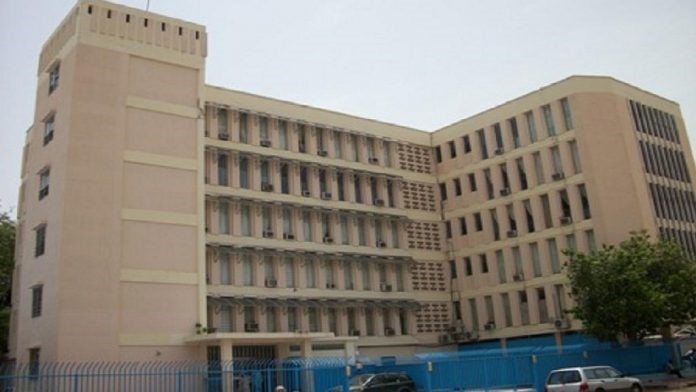By Abdelkarim Jaiteh
The Banjul High Court has yesterday referred the protracted murder trial involving the former junta member and one-time Minister, Yankuba Touray to the Supreme Court for interpretation on the constitutional immunity earlier raised by the defence lawyer.
The ruling came after two weeks of heated debate between the defence lawyer and the Principal State Counsel as to whether Mr Touray should be immune to prosecution based on the 1997 constitution and his virtue as a former member of the defunct AFPRC.
However, Justice Ebrima Jaiteh who has been presiding over the case since its inception in June 2019 went through the arguments and submissions of both parties who both contended that the matter is not for referral or interpretation of the law by the Supreme Court.
Justice Jaiteh observed that he has listened keenly to the arguments and submissions of both parties with great interest for proper determination of the defence application for constitutional immunity.
According to the trial judge, there is only one issue to be determined and that is, whether the High Court has the jurisdiction to invoke paragraph 13 of the second schedule of the 1997 Constitution of The Gambia.
The presiding judge noted that the 1997 Constitution confers on the Supreme Court the exclusive original jurisdiction to interpret or enforce any provision of the Constitution except the provisions provided under Sections 18 to 33 and Section 36(5) which are reserved for the High Court and deals with the fundamental rights and freedom.
“I strongly disagree with the submissions of both Counsel for defence and the State that paragraph 13 of the Constitution is not about interpretation or enforcement, rather it is about invocation. It is my strong view that a court of law cannot invoke or enforce a provision of the Constitution without interpretation. I hold the strong view that any attempt by this honourable court to invoke, interpret or enforce any provision under paragraph 13 thereof will tantamount to an academic exercise in futility hence this court has no jurisdiction to entertain the issue of Constitutional immunity under paragraph 13 of the Constitution, Justice Jaiteh observed.
Justice Jaiteh further went on to upheld that the issue of Constitutional immunity brought pursuant to paragraph 13(1), (3) and (5) of the second schedule of the 1997 Constitution is hereby referred to the Supreme Court for determination, the proceedings in the trial are hereby stayed pending further orders and or directives of the Supreme Court in the matter and that the Principal Registrar of the High Court is also directed to forward a copy of the ruling and arguments of counsel in respect to Constitutional matter from the record of proceedings to the Supreme Court of The Gambia .
The accused Yankuba Touray was a former member of the defunct AFPRC junta which overthrew the democratic elected government of the late President Jawara in 1994.
He is being tried on a single charge of murder for his alleged involvement in the murder of the late Finance Minister, Ousman ‘Koro’ Ceesay at Touray’s residence in Kololi. Touray however denied any wrongdoing and since then he has been detained at the state central prison at mile two.
In trying to establish a prima facie case the state prosecutors presented nine witnesses before the closure for their case while the defence called three witnesses including the accused himself.





